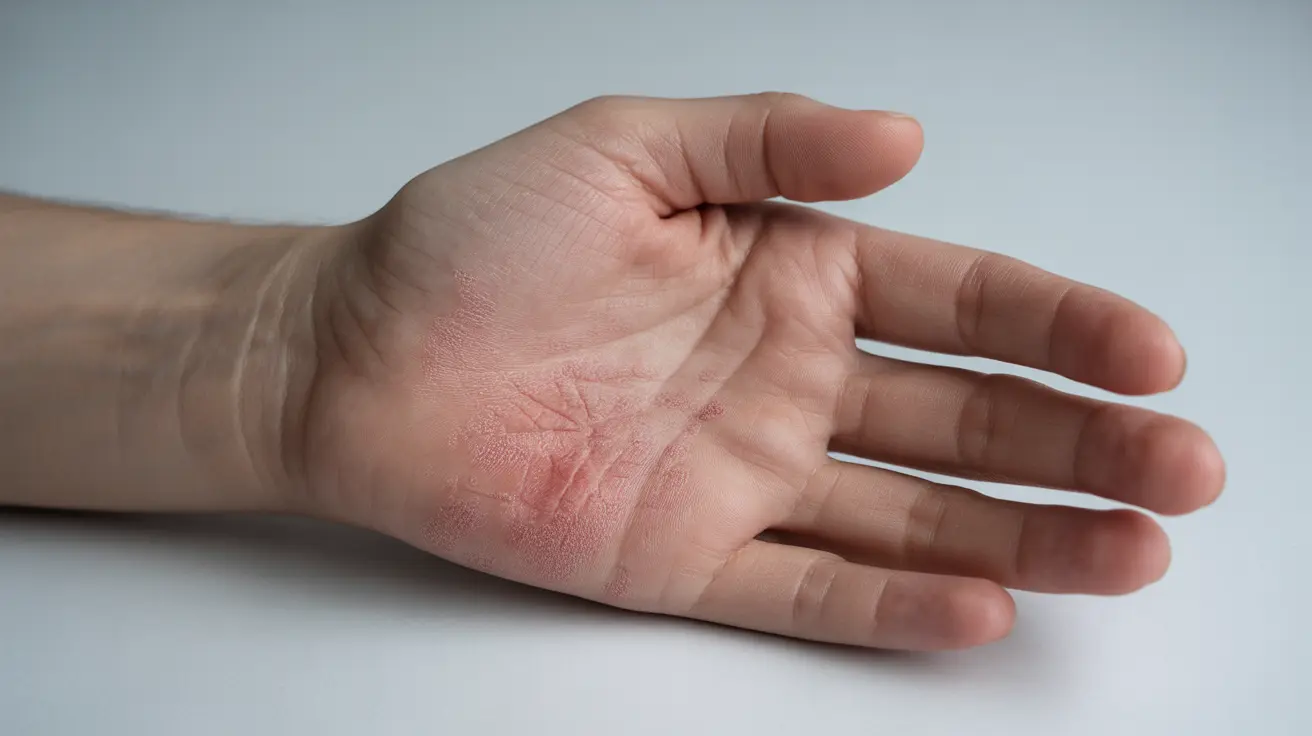Living with stress-related eczema on your hands can be both physically uncomfortable and emotionally challenging. This common skin condition affects many individuals, particularly during periods of heightened stress, leading to irritated, inflamed skin that can interfere with daily activities.
In this comprehensive guide, we'll explore the connection between stress and hand eczema, identifying key symptoms, effective treatments, and practical strategies for managing this condition.
Understanding the Stress-Eczema Connection
When stress levels rise, your body releases certain hormones and chemicals that can trigger inflammatory responses in the skin. For people prone to eczema, this stress response can lead to flare-ups, particularly on sensitive areas like the hands.
The relationship between stress and eczema often creates a frustrating cycle: stress triggers eczema, and the presence of eczema causes more stress, potentially leading to continued flare-ups.
Recognizing Hand Eczema Symptoms
Stress-related eczema on hands typically presents with several distinctive symptoms:
- Dry, scaly patches
- Redness and inflammation
- Intense itching
- Small, fluid-filled blisters
- Cracking or splitting of the skin
- Burning or stinging sensation
- Thickened skin in affected areas
Medical Treatment Options
Several effective medical treatments can help manage stress-related hand eczema:
Topical Treatments
- Prescription corticosteroid creams
- Topical calcineurin inhibitors
- Barrier repair moisturizers
Systemic Treatments
For severe cases, your healthcare provider might recommend:
- Oral antihistamines
- Systemic corticosteroids
- Immunosuppressant medications
Prevention and Self-Care Strategies
Stress Management Techniques
Implementing effective stress management practices is crucial:
- Regular exercise
- Meditation or mindfulness practices
- Deep breathing exercises
- Adequate sleep
- Professional counseling when needed
Skin Care Routine
Maintain a consistent skincare regimen:
- Use gentle, fragrance-free cleansers
- Apply moisturizer immediately after washing
- Wear protective gloves during household tasks
- Avoid hot water when washing hands
- Pat hands dry instead of rubbing
When to Seek Professional Help
Consult a healthcare provider if you experience:
- Severe or persistent symptoms
- Signs of skin infection
- Significant impact on daily activities
- Symptoms that don't improve with over-the-counter treatments
- Sleep disruption due to symptoms
Frequently Asked Questions
What are the common symptoms of stress-related eczema on the hands?
Common symptoms include dry, itchy skin, redness, inflammation, small blisters, cracking, and burning sensations. The skin may become thickened over time in frequently affected areas.
How can stress trigger or worsen eczema flare-ups on my hands?
Stress triggers the release of inflammatory chemicals in the body, which can lead to skin inflammation and eczema flares. Additionally, stress can weaken the skin barrier function, making it more susceptible to irritants and allergens.
What treatments are effective for managing stress-induced hand eczema?
Effective treatments include topical corticosteroids, moisturizers, barrier repair creams, and in severe cases, oral medications. Combining medical treatments with stress management techniques often provides the best results.
What lifestyle changes and skin care routines can help prevent eczema flares caused by stress?
Regular stress management practices, consistent moisturizing, using gentle skincare products, protecting hands from irritants, and maintaining good sleep habits can help prevent stress-related eczema flares.
When should I see a doctor or dermatologist for stress-related eczema on my hands?
Seek medical attention if your symptoms are severe, persistent, show signs of infection, significantly impact daily activities, or don't respond to over-the-counter treatments. A healthcare provider can develop a targeted treatment plan for your specific condition.




